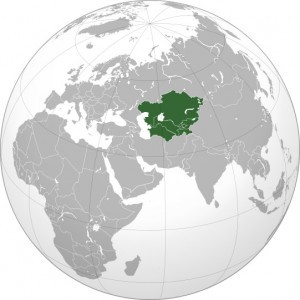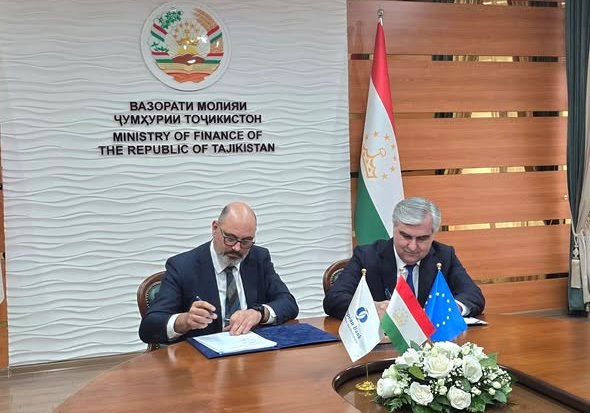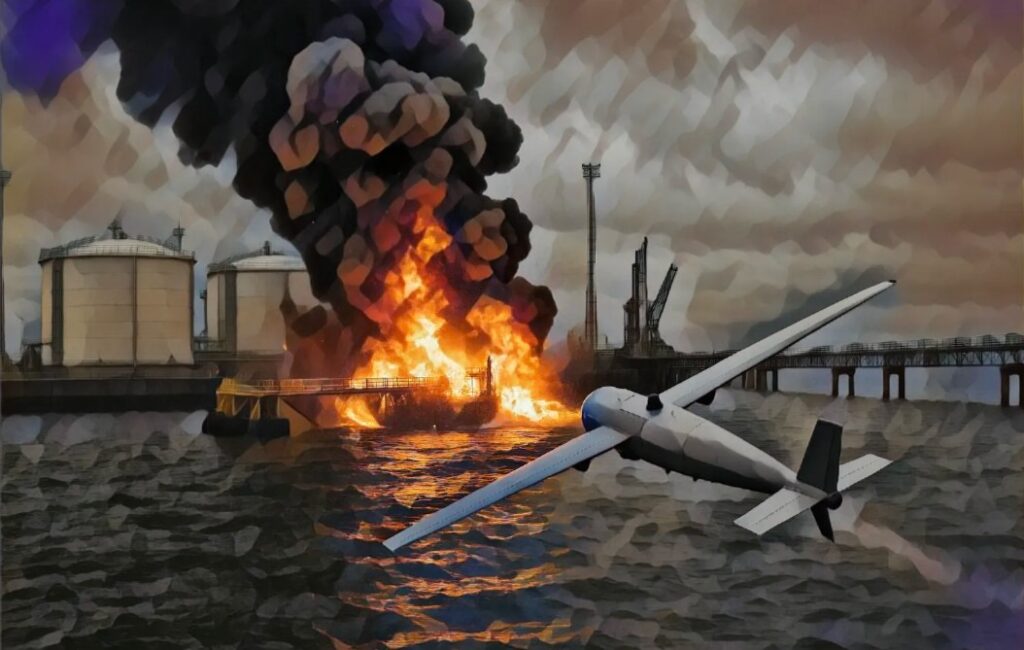BISHKEK (TCA) — The Times of Central Asia presents to its readers Stratfor’s Global Intelligence, a weekly review of the most important events that happened in the world — from Europe to Middle East to Russia to Central Asia to Afghanistan to China and the Americas.
The Week That Was
EgyptAir Flight 804
Even with the recovery of some EgyptAir Flight 804 debris May 21 and transmissions indicating smoke before landing, the cause of the crash is still unclear. Evidence points to either a catastrophic technical failure or an improvised explosive device. As we await details from the background checks on the passengers and the flight crew and from the debris and body parts tested for explosive traces, we are struck by the lack of a credible claim of responsibility. Islamic State and Al Qaeda tend to claim such attacks within 48 hours. This could of course mean the crash was in fact accidental, but it could also portend something far more ominous. A terrorist group that wants to conceal its involvement in order to replicate the attack elsewhere would want to stay below the radar for now. This reminds us of the bombing of Philippines Airlines Flight 434 in December 1994 that was not claimed because the planners hoped to use a similar device in a larger attack targeting 10 trans-Pacific airliners. Our security team will continue to keep our members updated as we learn more.
Loyalist Setbacks in Syria
Following the defeat of Syrian loyalists at Khan Touman, which yielded an embarrassingly high number of Iranian casualties, the Iranians and Hezbollah are pretty shaken up. Numerous rumors trickled out from our sources claiming that Iranian and Hezbollah forces were contemplating drawing down their forces in northern Aleppo, with blame being cast on the Iranian Quds Force commander, Maj. Gen. Qassem Soleimani, for the defeat. While the Khan Touman debacle likely stirred up an intense debate on how Iranian and Hezbollah forces should proceed in Syria, the rumors are likely exaggerated. In fact, Hezbollah leader Hassan Nasrallah was even more defiant in a speech on May 20, claiming that more Iranian commanders than ever before will arrive in Syria. The ever-enigmatic Soleimani meanwhile is rumored to have been transferred to Lebanon. There he will still likely be influencing Iran’s Syria strategy but where he could also help fill holes following the May 13 assassination of senior Hezbollah military commander Mustafa Badreddine.
Gearing up to Take Raqqa
While Iran and Hezbollah recalibrate their positions in Syria, the United States is preparing for an offensive against the Islamic State bastion of Raqqa that will be led by the Syrian Democratic Forces. Russia earlier attempted to lay the groundwork for coordination on a Raqqa offensive, but negotiations with the United States have reached a stalemate. Russia may become more disruptive in the coming days around Aleppo, perhaps stepping up air operations against rebel positions. Islamic State is meanwhile digging in for the coming battle, reportedly covering streets with blankets to hinder intelligence, surveillance and reconnaissance by coalition forces as to their movements. Even as leaflets are being dropped by coalition forces for locals in Raqqa to flee the area, Islamic State will work to prevent civilian escape to maintain their human shields and complicate the coalition air campaign.
Progress in Ukraine Talks
While the Syrian conflict zone remains hot, we will be looking signs of the Ukrainian conflict de-escalating further. U.S. Assistant Secretary of State Victoria Nuland met with Russian presidential aide Vladislav Surkov and Russian Deputy Foreign Minister Sergey Ryabkov on May 17. The Nuland-Surkov dialogue is where we would look for signs of a potential breakthrough between Washington and Moscow on Ukriane. Although Nuland maintained the U.S. position that a full cease-fire needs to be implemented and that elections in eastern Ukraine need to be held in accordance with the Minsk agreement, rumors out of Russia indicated that Nuland brought with her some creative proposals to potentially eliminate the security roadblocks on the Minsk agreement.
We will be watching for any shift from the Russian side on their military presence in eastern Ukraine as Moscow tries to create the conditions for sanctions easing this summer. Part of this effort may entail introducing an armed Organization for Security and Co-operation in Europe (O police force to provide security during the Donbas election and potentially along the front lines to take steps toward enforcing the ceasefire. That said, this is a proposal that faces a number of obstacles. Case in point: Donetsk People’s Republic leader Alexander Zakharchenko said his forces would shoot any such armed OSCE forces if they were to enter Donetsk. Surkov and Nuland still have some work to do.
Offshoring China’s Steel Sector
China’s limited ability to curb overcapacity in the steel sector continues to fuel a global battle for market share. People’s Daily announced that China was preparing to shift 10 million metric tons of steel production capacity to Brazil, led by China’s largest steel producers, including Baosteel and Ansteel. While only limited details have been announced on this plan, these enterprises will receive funding from the China Development Bank, China’s premier policy bank which specializes in providing below-market rate loans to Chinese firms in support of central government policies.
This plan was announced less than a week after an Indian steel company expressed interest in having China move steel production to India, suggesting potential for a larger outward push as China’s steel industry follows the footsteps of its Japanese, South Korean and Taiwanese counterparts in offshoring. Nonetheless, China’s steel production is a two-tiered problem and the movement of production to Brazil will only have a limited impact on China’s overcapacity problems. Despite the budding success of large state champions in shifting to become multinational conglomerates, the domestic picture remains bleak.
The government has been drawing attention to efforts to trim overcapacity in bloated heavy industries such as steel — a stated priority for 2016. The Chinese vice minister of industry, however, also admitted that little progress had been made in actually trimming steel industry capacity. As steel production has been resistant to both market signals and policy directives from the center, the overproduction of Chinese steel that incited increased tariffs from the EU and now the US appears as if it will continue for some time—even as excess overhead minimizes the profits of Chinese steel firms.
Full Articles
The Next Phase of the Jihadist Threat in Saudi Arabia
Jihadism has deep roots in Saudi Arabia, the second-largest source of foreign militants in Iraq and Syria since the Syrian civil war began in 2011. Since the mid-2000s, Saudi security forces have contained the jihadist threat in the kingdom, aware of the economic and security dangers it could pose if left unchecked. But in the past year, Islamic State activity in the kingdom — and a recent series of raids against alleged militants — has raised fears that the threat may be growing beyond authorities’ control.
China Goes on Trial in the South China Sea
As China has worked to expand its role in the Pacific region, it has taken steps to protect its strategic trade routes, resources and markets from foreign interdiction. In part, this has meant trying to cement Beijing’s long-standing claims to a broad swath of the South China Sea — claims that many of China’s Pacific Rim rivals dispute. Some, like the Philippines, have even gone so far as to take their competitors to court. In January 2013, Manila initiated legal proceedings against Beijing for violating the U.N. Convention on the Law of the Sea (UNCLOS), a 1994 regulation intended to provide predictable, mutually agreed-upon definitions and dispute resolution mechanisms to settle maritime conflicts. Since all of the South China Sea’s major claimants (with the exception of Taiwan) are parties to the agreement, UNCLOS should, in theory, solve any disputes that take place there. The U.N. Permanent Court of Arbitration agreed to hear the Philippines’ case and is expected to announce its decision by the end of June.
Reining in Putin’s Cronies
Moscow is desperate for cash. In the midst of a recession caused by low oil prices, Western sanctions and anemic foreign investment, the government needs revenue to meet budget shortfalls. The Kremlin has already cut the government budget twice since the end of 2015 — 10 percent each time. It now aims to keep this year’s budget deficit below 3 percent of gross domestic product. So it has turned to Russia’s massive state-owned corporations for help. Russian Finance Minister Anton Siluanov is drafting directives that would require these companies to pay a minimum of 50 percent of their net profits via dividends to the government. But state firms and their powerful patrons, known as the silovarchs, are pushing back against the proposal.
What China Owes a Bygone Era
Whereas Mao Zedong’s contribution to modern China is universally understood, the Qing dynasty’s contribution is far less acknowledged. When it is mentioned, it is in negative terms — the dynasty is often used as a counterexample to the dynamic modernism of the Communists and nationalists. But the Qing played a pivotal role in shaping contemporary understandings of both what constitutes China and what it means to belong to the Chinese nation. The dynasty ruled from 1644 to 1912 and built an empire it called Zhongguo, meaning the central kingdom. The dynasty’s founders, ethnically Manchu, are often imagined today as the outsiders against which Han identity formed, but they were actually crucial to making China the multiethnic nation it is today.
Lebanon’s Municipal Elections Melodrama
Lebanon is a politically fractured country, boasting 18 officially recognized religious groups all vying for political power. These groups have long sought outside support to outcompete their rivals. As a result, Lebanon is also a country torn, where the melodramas of the Middle East play out and other countries, mainly Iran and Saudi Arabia, jockey for influence. Now that Lebanon’s municipal elections are underway, the country’s political divides are on full display, and they could widen even further as the vote unfolds.
What Lets Gabon’s Government Go Unchecked
Worrying signs are beginning to emerge from Gabon as the country moves closer to its presidential election in August. Like many of its peers, the Central African oil producer has been hit hard by the slump in global energy prices, and the resulting strain on the Gabonese budget is starting to take a political toll. With less money to secure support and more rivals to contend with, the Gabonese Democratic Party may have trouble protecting its rule and the system that has kept it in power for over half a century.
The Week Ahead
Retaking Raqqa
Several indications point towards an imminent U.S. coalition-backed Syrian Democratic Forces offensive on Raqqa, the self-declared capital of the Islamic State. These include Syrian Democratic Forces deployments and statements highlighting final preparations being put in place, the United States dropping leaflets on Raqqa urging civilians to leave the city, and measures by the Islamic State such as declaring a state of emergency in the city. When the offensive does take place, we can expect a fierce defense by the Islamic State and a grinding battle that could last weeks, if not months.
G-7 Finance Summit
May 20 saw the start of the G-7 finance ministers meeting in Sendai, Japan, which will be followed by a two-day leaders’ summit starting May 26. Sometimes the true import of these meetings only becomes clear months later, as was the case with the February meeting of the G-20. Later it became apparent that attending countries had agreed to coordinate monetary policy in order to calm the financial markets, which had experienced a tumultuous start to the year. Three months later, and that coordination strategy appears to be reaching its natural limits, as inflation risks add pressure to the United States to hike interest rates in June. If the last rate hike in December is anything to go by, this may lead to a resurgence of market volatility.
On the positive side it may help the meeting’s hosts, Japan, who have seen the yen climb to uncomfortable highs against the dollar off the back of the February truce. With coordinated fiscal stimulus likely to figure high in G-7 discussions (though probably without the desired amount of German buy-in) Japanese Prime Minister Shinzo Abe may be tempted to use the opportunity to announce a postponement of the planned 2017 consumption tax hike. There is some speculation that he might also call snap elections in order to demonstrate public approval for the policy change.
Eurozone Talks Greek Bailout Deal
Eurozone finance ministers will meet May 24 to try and get closer to a bailout deal on Greece. The battle lines are hardening, however. The International Monetary Fund continues to condition its participation in the bailout program on debt relief while German Finance Minister Wolfgang Schaeuble insists that debt relief should only come in 2018 after the 2017 German national elections. Germany is not only going up against the International Monetary Fund in this round, but also a socialist coalition of European leaders from France, Portugal and Italy. This grouping is preparing to stand up to Berlin and defend Athens so that they, too, will be able to negotiate financial leniency when they need to. There is still room for a compromise, but it is getting harder and the political temperature in Berlin is rising.









